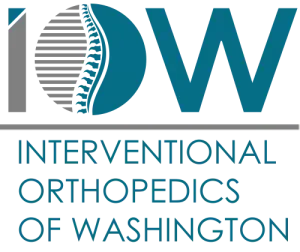Follow Us:
Open Hours
Tues - Fri 8:30 AM to 5:00 PM
Welcome to Interventional Orthopedics of Washington
Advanced Regenerative Orthopedic Medicine
& Functional Wellness
Welcome to Interventional Orthopedics of Washington
Advanced Regenerative
Orthopedic Medicine &
Functional Wellness
Watch The Video Below
Learn More About
What We Do at IOW
Watch The Video Below
Learn More About What We Do at IOW
Can’t find your condition on the list?
You might be a candidate. Schedule your free discovery call and let’s explore your options.
Meet IOW's Expert Care Team
Expertise You Can Trust. Care That Puts You First.

Dr. Otoño Silva, MD
Founder of IOW | Board-Certified in
Physical Medicine & Rehabilitation

Dr. Balaji Sridhar, MD, PhD, MPH, RMSK
Specialist in Orthobiologics
& Musculoskeletal Health

Stephanie, LPN
Licensed Practical Nurse

Jenna
Operations & Patient Education

Otoño Silva, MD

Balaji Sridhar, MD

Stephanie

Jenna
Meet IOW's
Expert Care Team
Expertise You Can Trust. Care That Puts You First.

Stephanie

Balaji Sridhar, MD

Otoño Silva, MD

Jenna

Dr. Otoño Silva, MD
Founder of IOW | Board-Certified in
Physical Medicine & Rehabilitation

Dr. Balaji Sridhar, MD, PhD, MPH, RMSK
Specialist in Orthobiologics &
Musculoskeletal Health

Stephanie, LPN
Licensed Practical Nurse

Jenna
Operations & Patient Education
Read Our Reviews
What Our Patients Are Saying
Frequently Asked Questions
What does Interventional Orthopedics of Washington do?
At IOW, we specialize in helping patients heal orthopedic injuries without surgery. Using advanced image-guided treatments like PRP and stem cell therapy, we support your body’s natural ability to recover and regenerate.
Who are these regenerative treatments for?
Our regenerative treatments are designed for adults dealing with joint pain, injuries, or chronic conditions who want to stay active and avoid invasive surgery. We commonly treat knees, backs, shoulders, hips, and more.
Are these regenerative treatments covered by insurance?
Most regenerative treatments aren’t covered by insurance, but we offer transparent pricing and flexible payment options. Our team will walk you through costs before anything begins — no surprises.
How do I get started?
Getting started is easy. You can schedule a consultation online or call our Bellevue clinic. We’ll review your condition and recommend a personalized care plan tailored to your goals.
Send Us an Email
Contact Us
Tues – Fri
We’re Open: 8:30am to 5pm
Weekends
We’re closed: Sat, Sun, Mon
*We are located directly across from Seattle Children’s Hospital – Bellevue. Pull into the driveway at the “Bellegrove Professional Park” building and park at any of the free parking spots for our building. Our office is located on the second floor. Stairs and elevator access are both available.

Interventional Orthopedics of Washington
Fax: (425) 326-1667
Clinic Hours
Open:
Tues – Fri 8:30am to 5pm
Closed:
Sat, Sun, Mon
© Copyright 2025 Interventional Orthopedics of Washington


